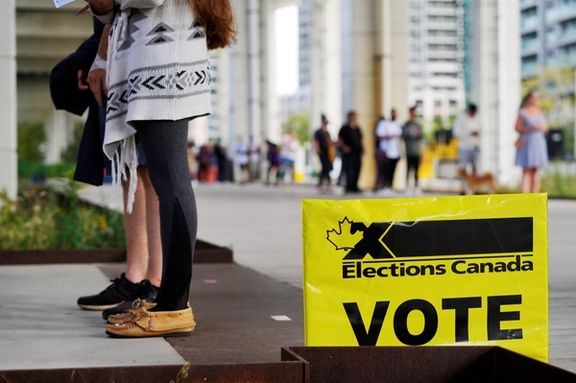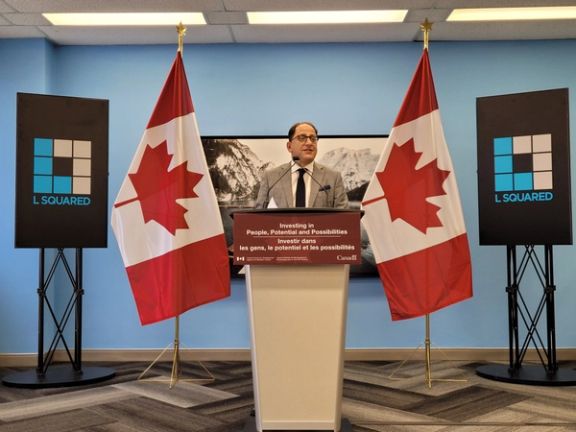Lawmaker Urges Inquiry Into Iran Meddling In Canada's Politics

A Canadian-Iranian lawmaker has called for an inquiry about Tehran’s potential interference in the country’s elections as was seen in the 2020 US presidential vote.

A Canadian-Iranian lawmaker has called for an inquiry about Tehran’s potential interference in the country’s elections as was seen in the 2020 US presidential vote.
“Given the catalogue of malign and illegal activities committed by the Islamic Republic of Iran on Canadian soil, it would be naïve to believe that the Iranian regime has any compunction to shape public opinion in Canada,” Ali Ehsassi said in his letter, calling for soliciting testimony and relevant documentation from Iranian-Canadians and others with a substantial interest in the proceedings.
In a formal letter addressed to Commissioner Marie-Josee Hogue, who oversees Canada’s Foreign Interference Commission, Ehsassi demanded that Iran be included within the ambit of her inquiry.
Officially called the "Public Inquiry into Foreign Interference in Federal Electoral Processes and Democratic Institutions," the inquiry was established by the government of Canada in September 2023 focusing on the interference by China, Russia and other foreign actors on the 2019 and 2021 federal elections. Its first public hearing has been underway since late January and its interim report should be submitted by February 29.
Expressing concern about “the rather inconclusive public commentary that has surrounded the specific scope of the inquiry,” Ehsasi strongly urged Hogue “to consider examining and assessing any nefarious activities attributable to the Islamic Republic of Iran in Canada that may have impacted our political processes or democratic foundations.”

He mentioned the inclusion of India in the inquiry as a precedent for expanding its scope, saying that the inquiry requested that the Federal Government collect and produce all classified information that may be within its possession that relate to the alleged interference by India. He suggested that she do the same about Iran.
Representing Willowdale in Toronto, Ehsassi highlighted the presence of a sizable Iranian-Canadian community in his federal riding. He emphasized the need to examine the Iranian regime's potential involvement in Canada's political landscape, citing concerns about cyberattacks, money laundering operations, and various attempts to influence elections.
In 2021, two Iranians were charged for cyber disinformation and a threat campaign designed to influence the 2020 US presidential election. Mohammad Hossein Muousakazemi (27) and Sajjad Kashian (24) illicitly acquired confidential US voter information through a breach of at least one state election website. Subsequently, they sent threatening email messages to instill fear and disrupt voters. Additionally, the perpetrators produced and circulated a deceptive video, spreading disinformation about alleged vulnerabilities in election infrastructure. They also made attempts to access several states' voting-related websites.
“Any familiarity with the intentions and capabilities of the Islamic Republic confirms that it retains a keen interest in furthering its perceived objectives in Canada, albeit by clandestine and surreptitious means," he said. “Apart from being able to draw on various individuals linked to it that reside in Canada, the Iranian Government is believed to rely on a number of organizations and foundations to assist it in sowing division, slandering individuals, silencing its critics, or holding sway over our elections.”
Ehsasi also pointed to Tehran’s efforts to harass and target people throughout North America, saying that “in recent years numerous plots by the Iranian regime to assassinate individuals in North America have been foiled.”
Just last month, US prosecutors accused an Iranian drug lord of recruiting two Canadian Hells Angels to assassinate Iranian defectors in Maryland as attacks on dissidents abroad continue. A federal indictment accused Naji Sharifi Zindashti of leading a network that has perpetrated the killings, tortures and kidnappings of Iranian dissidents around the world on the orders of Iran’s Ministry of Intelligence and Security.
In his letter, he referenced warnings from Jody Thomas, former National Security Adviser to Prime Minister Trudeau, and Richard Fadden, former Canadian Security Intelligence Service director, who cautioned against ignoring potential interference by Iran. “The Public Inquiry will prove unable to detect, deter or encounter the full breadth of threats posed to Canada by foreign regimes without an examination of the Islamic Republic of Iran.”
Ehsasi concluded by urging the commission not to turn a blind eye to the Iranian regime's malign intent and activities on Canadian soil, emphasizing that failure to do so might cast doubt on the overall efficacy of the inquiry's findings and “embolden the Iranian regime to attempt to influence Canada’s elections in the future.”
A report by Canada’s Global News in November cited Canadian-Iranians, legal experts, and security and intelligence sources as concurring that Canada has an especially big problem with hundreds, maybe thousands, of potentially dangerous regime-connected officials on Canadian soil.
Earlier this week, Canada’s refugee board ruled that former Iranian government official Majid Iranmanesh cannot stay in the country because of his high-level connections to the regime. Iranmanesh is one of nine alleged senior members of the Iranian regime who face possible deportation. The Canada Border Services Agency has said it was investigating 141 such cases. Thirty-eight have been closed without action.
According to Canada-based activist Hamed Esmaeilion who lost his daughter and wife in the shooting down of Flight PS752 by Iran’s Revolutionary Guard in 2020, said, “Islamic Republic agents are everywhere in this country. Everywhere.”
He is one of many Iranians in the diaspora calling on Western governments to designate the IRGC.